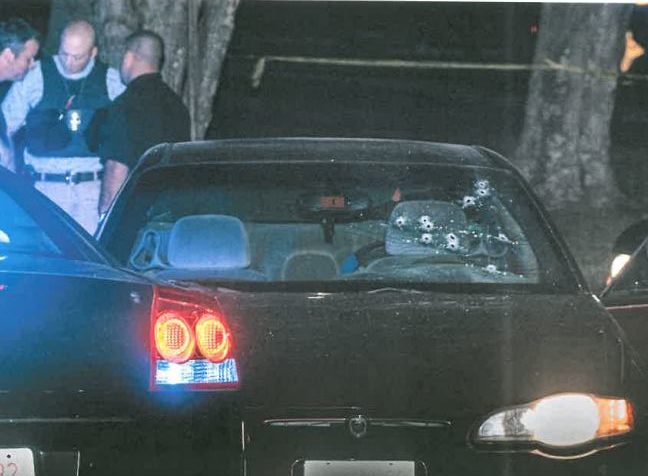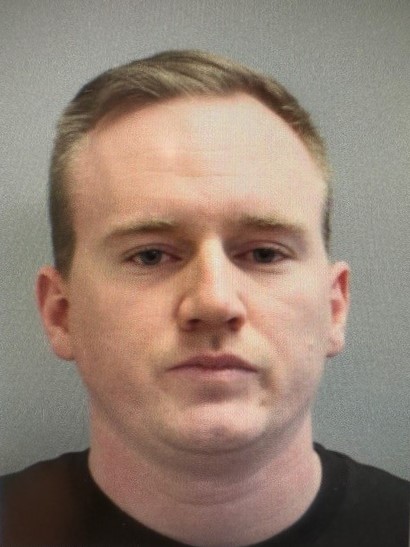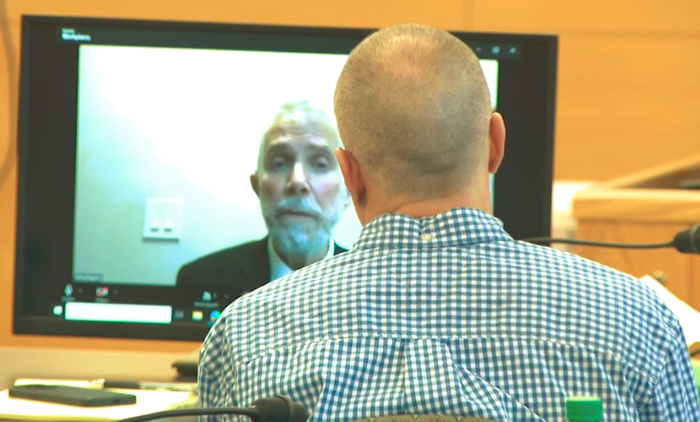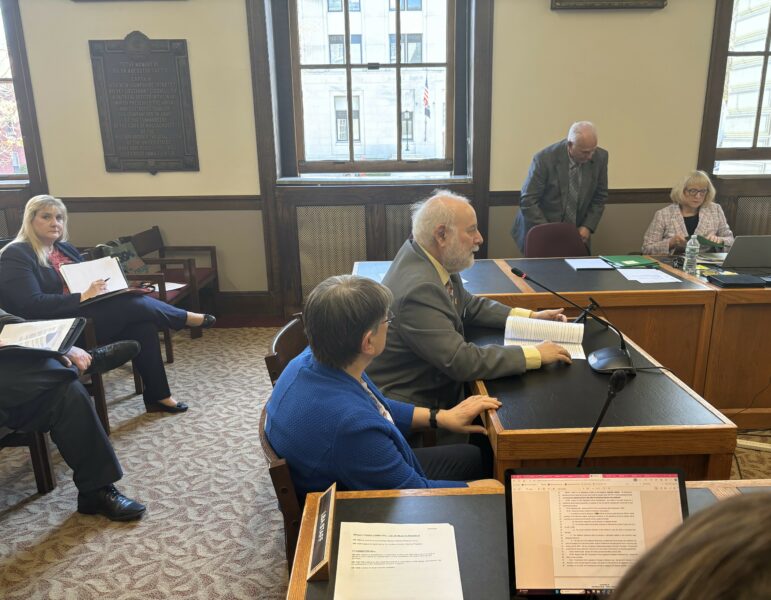Attorney General’s Report on Wendy Lawrence Shooting
By Nancy West
InDepthNH.org
CONCORD – It’s now up to U.S. District Court Judge Paul Barbadoro whether a woman’s estate can move forward with a civil lawsuit against the state trooper who shot her to death in Manchester after a police chase four years ago.
At a hearing Monday, Barbadoro questioned lawyers representing Trooper Chad Lavoie and the estate of Wendy Lawrence, 45, who died after Lavoie fired 11 shots into her car after a police pursuit on Sept. 30, 2013. Former Attorney General Joseph Foster ruled the shooting a justified use of deadly force.
Four of the bullets struck Lawrence, a grandmother from Canterbury, and the medical examiner ruled it was the bullet to her chest that killed her.
In a motion for summary judgment, which would end the lawsuit without trial if Barbadoro rules in the state’s favor, Senior Assistant Attorney General Karen A. Schlitzer argued “(Lavoie’s) use of lethal force was objectively reasonable.”
Schlitzer said Lavoie was entitled to use lethal force to protect himself from serious harm or death “given that Lawrence tried to run over him.”
And Lavoie had probable cause to believe if Lawrence got away, that she posed a threat of harm to him and others.
Representing Lawrence’s estate, Charles G. Douglas told Barbadoro that Lawrence’s vehicle was either stopped or traveling at about 2 miles an hour when she was shot at the intersection of Kennard Road and Dave Street.
Douglas painted a vastly different picture of what happened that night. Three other troopers were already on the scene, had ended the chase when Lavoie pulled up with sirens and lights on and blocked Lawrence’s maroon 2000 Monte Carlo from leaving.
Lavoie then rushed to within five feet of her car, placing himself in an unsafe situation if she decided to leave, and opened fire, Douglas said. He saw her hands on the steering wheel and knew she wasn’t holding a weapon, Douglas said.
“(Lavoie) cowboyed up and decided he was going to take her down,” Douglas said.
Lavoie’s cruiser had hit Lawrence’s car, but not hard enough to deploy airbags. The chase started at about 6 p.m. that day when Lawrence was stopped on Interstate 89 for erratic driving by Trooper Kevin Leblanc.

Court records
Photo showing the 11 bullet holes in Wendy Lawrence’s car.
She gave Leblanc a non-driver’s identification and took off while he went back to his cruiser and learned that Lawrence was a habitual offender with a suspended driver’s license, according to Foster’s report. Then Lawrence got into an accident at the intersection of I-93 and kept going.
When she took the exit for Manchester, Lawrence drove at reasonable speeds and the chase had been called off when Lavoie arrived and blocked her car in.
Douglas and Rick Lehmann argued that Lavoie didn’t try to take Lawrence into custody by opening her door or coordinating the use of non-deadly force to arrest her with the three other armed troopers who got there first.
“He made no attempt to disable the vehicle by shooting out tires or the radiator. He fired no warning shot. Instead, he fired upon her repeatedly, stopping only when his service pistol was emptied,” the suit states.
Lawrence’s estate, administered by her son, Michael Rand, claims Lavoie used excessive force and in fact created the dangerous situation that led to Lawrence’s death. Court records indicate the estate is seeking at least $2 million.
Schlitzer said the state doesn’t discuss pending civil litigation, but responded to a request for comment with the following statement.
“In 2013, this was found to be a justified use of lethal force after an investigation. This civil lawsuit brought by the Estate does nothing to change that,” Schlitzer said.
She went on to say: “Any loss of life is a tragedy. This case is not easy for the parties involved, and we will continue to strongly support and defend Sgt. Lavoie in this case.”
Douglas reiterated during the hearing that Lavoie moved from a place of safety into a position that would give him a direct and clear line of fire at Lawrence.
Any police officer would know to stay in a safe area, Douglas said, insisting Lavoie created the danger that he later claimed warranted his killing of Lawrence.
“Neither a police created urgency nor a self-created danger legally justifies the use of deadly use of force against a citizen,” he argued.
Summary Judgment Hearing
One issue raised at the hearing was how much time Lavoie had in order to make decisions before shooting Lawrence. Estimates ranged from 3 to 8 seconds. Barbadoro was concerned about settled case law that might back either or both the state’s and the estate’s claims.
“Know that I will not make up my mind until everyone is heard,” Barbadoro said.
At times, Barbadoro expressed frustration with both sides. He asked both legal teams to draw a diagram depicting where the cruisers and Lawrence’s vehicle were positioned right after the shooting, and ended up drawing his own diagram as well.
Barbadoro wondered why there was no proper diagram done by investigators right after the shooting, but used his diagram and continued to press both legal teams for details of the incident.
Barbadoro held a meeting in chambers with the lawyers to discuss a document the state wanted kept under seal. He allowed InDepthNH.org to make a case for holding the hearing in public.
He made it clear that he would keep a record of all arguments in chambers in case the nonprofit news outlet wanted to file a motion later on if he decided not to unseal it. Barbadoro explained that he believes in court transparency.
“If I need it to decide the case, then the public needs to know,” Barbadoro said. “I can’t be deciding things secretly. That’s not the way it works in federal court.”
His job in connection with the hearing is to decide if Michael Rand’s civil case is “minimally sufficient to go to a jury,” he said.
Schlitzer raised the argument that qualified immunity would bar the civil case. Public officials are shielded from civil damages if they haven’t violated the person’s statutory or constitutional rights.
Douglas explained after the hearing that police officers are immune from such lawsuits in cases in which they have acted reasonably.
“Was he reasonable in what he did?” Douglas asked regarding Lavoie.
Barbadoro asked both sides to write legal briefs explaining their positions relative to sealing the documents. He said he hoped to have a ruling on the motion by Labor Day.





